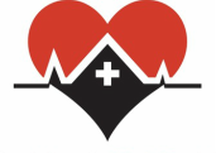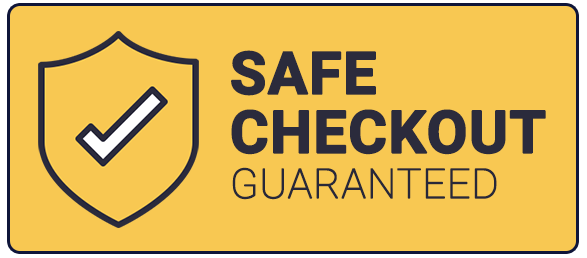How To Handle An Allergic Reaction!Have you ever had an allergic reaction to something? Allergic reactions can occur in response to a number of different things whether it be a bee sting and/or a house pet to even peanuts and freshly cut grass and hay. Allergic reactions can sometimes be mild and/or even severe. However, regardless of how severe an allergic reaction is, it is important to address it as efficiently and effectively as possible to prevent further distress. What Is An Allergic reaction?An allergic reaction is the body’s overreaction to an allergen or foreign protein. The extensive network of cells, hormones, tissues, and organs that compromise the immune system in the human body work effortlessly to keep the body safe from potential threats such as infections, viruses, and diseases. During an allergic reaction, the body produces substance-fighting proteins called Immunoglobulin E (IgE) antibodies. These antibodies travel to cells and release chemicals that, when combined with an allergen, prompt the body to release a compound called histamine, which is responsible for allergic reactions ranging from itching and irritation to swelling and even anaphylaxis. What Causes Allergic Reactions?An allergic reaction is caused by a combination of an allergen and the body’s response. There are three primary types of allergies and each type can involve a different type of response. The first are ingested allergies, which occur only when an allergen is ingested orally or intravenously. Common allergens in this category include peanuts, eggs, gluten, certain types of fruit, and some medications, including penicillin. The second are contact allergies, which occur when an allergen comes into contact with the skin and causes swelling or irritation. Common allergens in this category include soaps, detergents, hair dye, and latex. The final and most widespread type of allergies are inhaled allergies, which occur when an individual breathes in an allergen. Common allergens in this category include pollen and pet dander. What are common allergic reactions? An allergic reaction can produce one or more of the following symptoms: 1. Itching on the affected area or over the entire body 2. A red or raised rash on the affected area or over the entire body 3. Drowsiness 4. Swelling in the mouth or throat 5. A runny nose 6. Sneezing and watery eyes 7. Difficulty breathing or rapid breaths 8. Nausea or diarrhea 9. Hives In certain cases, an allergic reaction can impact multiple parts of the body at once with severe symptoms resulting in anaphylaxis. Symptoms of anaphylaxis typically begin 5 to 30 minutes after contact with an allergen. However, sometimes, it can take up to an hour for symptoms to become noticeable. The symptoms of anaphylaxis are noticeably more severe with individuals experiencing anaphylactic shock and even becoming dizzy or losing consciousness. Anaphylaxis can unfortunately occur suddenly and become lethal in a very short period of time. If you suspect an anaphylactic reaction, address it quickly with the medication prescribed by your physician (usually Epinephrine and/or Benadryl) and an immediate visit to an emergency room. Be Prepared! Get Certified With Help-A-Heart CPR!In order to acquire all of the necessary knowledge you need to address allergic reactions and administer proper precautions for handling allergic reactions; it’s always an excellent idea to enroll in a first aid course. A first aid course will provide you with knowledge regarding the administration of first aid for issues including muscle and bone injuries, seizures, general trauma, and allergic reactions. Students will then have an opportunity to practice their learned skills under the supervision of trained professionals. At the conclusion of the course, all students will obtain a Basic First Aid certification indicating that they have passed the course. Learn More About Allergic Reactions. Enroll in a First Aid Course!Would you like to learn more about allergies? Do you have any questions about how to handle an allergic reaction? Our instructors and staff here at Help-A-Heart CPR are here to answer your questions. Become better prepared and get certified with a Help-A-Heart CPR First Aid class. We offer the American Red Cross, American Heart Association, and/or the American Safety Health Institute First Aid class which will provide everything you need to know to provide first aid and emergency care for allergic reactions, injuries, and other trauma. Take a moment to explore our website to learn more about the many emergency response courses we offer, and enroll with our team at Help-A-Heart CPR today!
Comments
|
AuthorDr. Tracy A. Jones is the CEO of Help-A-Heart CPR, LLC and an American Heart Association, ASHI, and American Red Cross Master Program Trainer, Instructor, & AHA Faculty Member located in San Antonio, Texas. Archives
June 2024
Categories |
Help-A-Heart CPR, LLC | 1747 Citadell Plaza Suite 101 | San Antonio, Texas 78209 | (210) 380-5344 | [email protected]
Copyright © Help-A-Heart CPR, LLC 2024
100% Certification Acceptance
We promise your employer, school, or agency will accept the certification card we issue to you. If there is a question of acceptance or validity, simply send us an email at [email protected] with full details. We will reach out to the individual/entity and provide accreditation information. If still there’s a question, we will provide you with a full refund of your class fee. It’s that simple.
We promise your employer, school, or agency will accept the certification card we issue to you. If there is a question of acceptance or validity, simply send us an email at [email protected] with full details. We will reach out to the individual/entity and provide accreditation information. If still there’s a question, we will provide you with a full refund of your class fee. It’s that simple.
|
Communities Served
ALABAMA: Birmingham
ARKANSAS: Fayetteville, Hot Springs, Jonesboro, Little Rock NEW MEXICO: Albuquerque TENNESSEE: Knoxville TEXAS: Amarillo, Arlington, Austin, Bandera, Bastrop, Boerne, Brownsville, Comfort, Converse, Corpus Christi, Dallas/Ft. Worth, Del Rio, Dripping Springs, El Paso, Floresville, Fredericksburg, Georgetown, Harlingen, Houston, Junction, Katy, Kerrville, Kingsville, Kingwood, Laredo, Lubbock, Lufkin, McAllen, Midland, New Braunfels, Odessa, Pleasanton, Round Rock, San Angelo, San Marcos, Schertz, Seguin, Taylor, Temple, Texarkana, Tyler, Universal City, Victoria, Waco, The Woodlands |
Why Choose Help-A-Heart CPR?
1. Flexible Scheduling
2. On and Off Location Training Available 3. Casual, Fun Atmosphere 4. Best Price Guarantee 5. All Instructors are AHA and/or ARC certified 6. 5 Star Google Reviews 7. Blended Learning (Online & Skills Check) Available 8. Meets OSHA & College CPR Requirements 9. Get Certified Within 3-4 Hours 10.Certification Is Good For Two Years 11. Official AHA/ARC/ASHI Training Site 12. High Quality Safety Training! |








